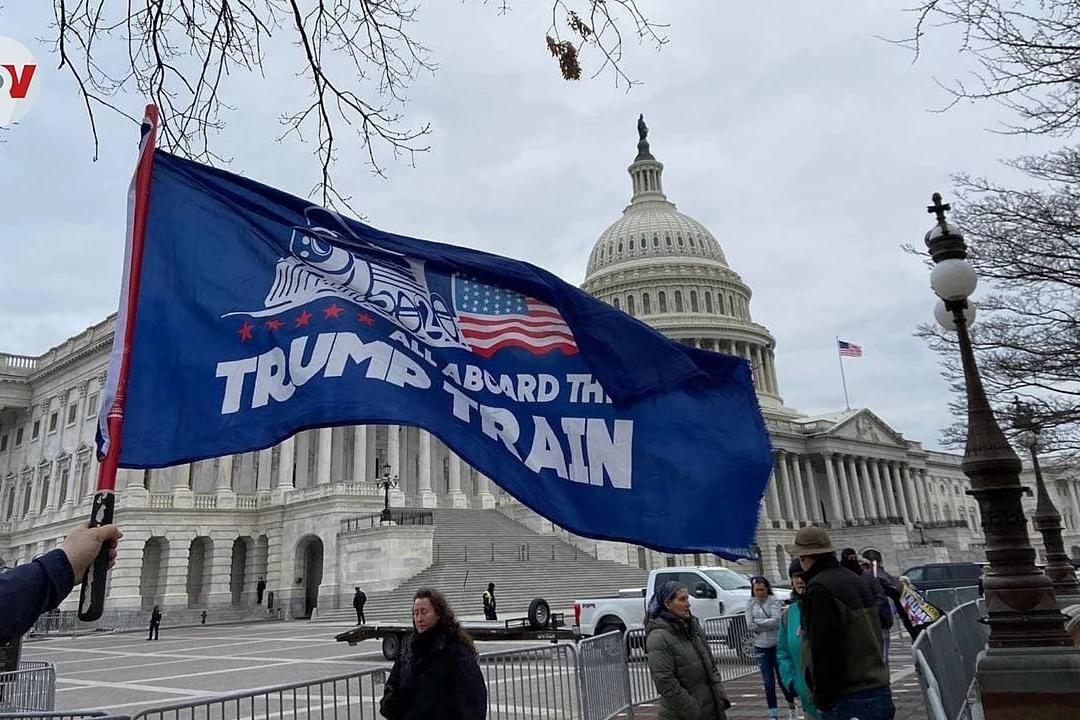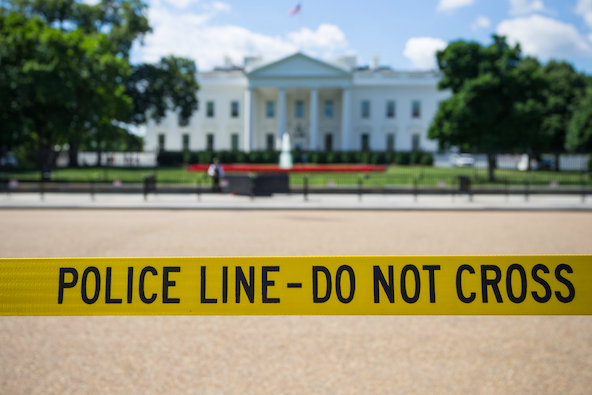Land Subsidence Threatens Communities — and the Global Real Estate Sector


Photo: Houston, Texas, is one U.S. city where land subsidence has imposed long-term risks.
In a new study, researchers determined that 19 percent of the world’s population, accounting for 21 percent of the global GDP, will be affected by land subsidence by 2040. Subsidence is the sudden sinking or gradual settling of land due to removing subsurface materials. The land subsidence noted in the study primarily focuses on subsidence due to pumping groundwater out of aquifers.
While subsidence is not a new phenomenon, it is increasing at an alarming rate. Drought, rising seas and global heating combined with the lack of pumping regulations and increasing populations will create problems worldwide: To that end, the study looked at 200 locations in 34 countries.
Further, in addition to residential and commercial real estate damage, subsidence can damage critical infrastructure, including water systems such as dams and systems for delivery, as well as bridges, roads and levees — all of which are already under strain from the effects of climate change and age. The result, as some studies have suggested, poses a long-term threat to communities, as well as the worldwide real estate sector.
The global reach of land subsidence
Land subsidence maps show areas of concern across the country, with California, Texas and Florida leading the pack and risk hotspots in metropolitan areas like Denver and Albuquerque.
California, Texas and Florida are among the U.S. states that have already suffered damage costing hundreds of millions of dollars. The Central Valley region in California provides a stark example: By the 1970s, areas subsided by nearly 30 feet, and continued monitoring since then has shown only moderate improvement. About 75 percent of water drawn from the area’s aquifers go to agriculture, as about 250 crops are grown in the region; yet many of those wells are not properly monitored, despite improved state regulations.
The Houston-Galveston area is one of the most populous areas susceptible to land subsidence in the U.S. Groundwater withdrawals in this region have led to the subsidence of approximately 3,200 square miles, some places subsiding a foot or more. Additional cities like Fort Lauderdale, Miami and New Orleans are likewise at risk. These cities already get battered by hurricanes, and climate change is only exacerbating the impacts. Flooding is a constant threat, made worse by sea-level rise and subsidence combined and subsequently compounding the stress on infrastructure. One scientific study after Hurricane Harvey in 2017 showed that the flooding pushed Houston down by 2 centimeters — on top of the subsidence levels of 4 centimeters a year in the previous several years.
Beyond the U.S., countries across the globe suffer from subsidence and its effects. Despite hundreds of years of engineering to manage land below sea level, the Netherlands continues to sink. Mexico, China and India are also in the subsidence crosshairs. Perhaps the most extreme example, however, is Indonesia, which is making plans to move its capital from Jakarta to Borneo, as Jakarta has sunk more than 2.5 meters in the past 10 years. Many sections of Jakarta are no longer safe to live in — and predictions are that some of the city's neighborhoods will be completely submerged by 2050. For reference, Jakarta is home to 10 million people, all of whom will eventually need to be relocated.
Are there any long-term solutions?
The good news is that, as opposed to climate change, land subsidence is a much easier problem to solve, and often the solutions are at the local and regional level. Satellites and radar can quickly identify areas at risk of subsidence. Policies and tools by local governments to monitor and regulate groundwater withdrawals are available and battle tested.
For example, Tokyo experienced subsidence levels around 24 centimeters a year by the late 1960s, but it introduced groundwater regulations that for all intents and purposes solved their subsidence problem. Further, water-efficient agriculture has been proven effective in many different climatic regions and could be instituted with regulations, investment and technologies.
The solutions are the same everywhere, and lessons learned abound. Cities that are most vulnerable to both subsidence and coastal flooding already have rebuilding underway. Effective groundwater regulations can be instituted immediately and should be part of region’s resilience strategies. Resilient cities are better able not only to protect their citizens but also attract private investment for longer-term sustainability. Indonesia is looking moving its capital because it's necessary. Other cities should take heed and put the proper protections in place to ensure that their communities will not need to follow suit.
Image credit: Vlad Busuioc/Unsplash
Legacy Fuel Company Embraces Sustainable Aviation Biofuel


In the latest demonstration that renewable energy has attained mainstream status, a subsidiary of Koch Industries has just teamed up with the Colorado-based biofuel company Gevo to expand sustainable aviation biofuel production in the U.S. It’s a baby step, considering Koch’s history of obstructing progress on climate action, but the new partnership could have widespread implications for the rapid decarbonization of the aviation industry and other sectors.
Why aviation biofuel?
Given the growing popularity of battery-powered electric vehicles, it may be tempting to write off biofuels as a means of reducing the carbon footprint of the global transportation sector. However, it will be many years before the global vehicle fleet transitions to electricity. In the meantime, biofuels are a short-term solution.
Opportunities for biofuels are even more pronounced in the aviation industry. The technology for flying a large piece of metal through the air is a challenging one for electricity. Commercial flights for small battery-electric airplanes and hydrogen fuel cell airplanes could take place in the near future, but the current state of technology does not apply to larger planes and longer flights.
That’s where the jet biofuel option comes in. The aviation biofuel market began taking shape several years ago. Various formulations have already been certified for flight.
Enlisting fossil fuel experts in the renewable energy cause
Key players in the aviation industry are eager to make the switch. Cost is one obstacle, but some companies — Microsoft, for example — are willing to include aviation biofuel in their decarbonization plans. If corporate support continues to grow, that could lead to economies of scale and supply chain efficiencies that help push costs down.
The broader challenge is to scale up production. Biofuels still account for a minuscule proportion of the global aviation fuel sector, but that could change. Gevo is a case in point. The company is pursuing a new biofuel expansion plan with financing arranged by Citigroup Global Markets, and part of the plan involves is to leverage the expertise of a legacy oil and gas stakeholder.
Earlier this week, Gevo announced that it has enlisted Koch Project Solutions, a subsidiary of Koch Industries, to perform engineering, design, and project management services for its new aviation biofuel facility. That represents quite a turnaround for Koch Industries, which has established a high-profile position in climate change denial in addition to its longstanding investments in fossil energy.
Nevertheless, Koch Project Solutions possesses a skill set that applies to renewable energy projects, and that dovetails with recent Koch Industries ventures into the biofuel arena.
As described by Bloomberg, Koch Industries was one company among petroleum stakeholders to capitalize on a downturn in the ethanol business around the 2008 financial crisis to acquire biofuel assets on the cheap. By 2016 it was the fifth-largest ethanol producer in the U.S.
Its acquisitions activity seems to have quieted down since then, but in 2017 the company did announce plans to upgrade a biofuel plant to make high-protein fish and chicken feed from the biosolids left over from ethanol production.
Gevo lays plans for expansion
The new biofuel activities don’t let Koch Industries off the hook for the climate impacts of its past and current fossil energy operations. However, the company’s focus on biofuels does present an interesting contrast with another legacy energy company with a history of financing climate denial, namely, ExxonMobil.
Where Koch has focused on corn ethanol and other biofuel pathways in an advanced stage of technological development, ExxonMobil has been burnishing its green profile in pursuit of the less developed field of algae biofuel.
The payoff for success in the algae biofuel field could be significant, because algae could potentially be farmed more sustainably than traditional crops. Algae farming could also provide a new, heretofore untapped pathway for carbon sequestration.
However, by focusing its efforts on a faraway goal, ExxonMobil has failed to participate in here-and-now solutions to climate impacts. Shareholder pressure may eventually force the company to pay more attention to the urgent need for rapid change, but for the present ExxonMobil appears determined to drag its heels on climate action.
In contrast, if the Gevo biofuel expansion plan comes to fruition, Koch Industries will be able to share in the credit for a massive shift in the scale of biofuel production in the U.S.
Gevo recently optioned the right to buy a 240-acre parcel of land near Lake Preston, South Dakota, with the aim of producing approximately 45 million gallons of jet biofuel and gasoline annually. The South Dakota site could also accommodate expansion in the future.
Speaking of sustainable biofuels…
Gevo’s expansion plan raises the question of how the company anticipates increasing its bioenergy crop supply chain without bumping into substantial sustainability issues related to agriculture.
A key part of the answer is regenerative agriculture, which refers to practices that build up and improve soil health and reduce dependence on chemicals, while also enhancing crop yields. Because of its focus on building soil, regenerative agriculture can also function as an effective carbon capture and sequestration tool.
Gevo actively encourages regenerative farming among its suppliers, and its efforts in that area could ripple out and accelerate the adoption of regenerative practices throughout the agriculture industry.
In yet another sustainability twist, last year Gevo installed wind turbines at its biofuel plant in Luverne, Minnesota, as part of a broader decarbonization effort.
In this light, it may seem all the more ironic that Koch Industries is providing material support for Gevo to expand. Nevertheless, the rule of following the money applies: As stronger public policies come to bear on decarbonizing the global economy, legacy companies like Koch Industries will have stronger bottom-line incentives to participate in the energy transition rather than fight it.
Image credit: Ross Parmly/Unsplash
Finally, After Five Years, Digital Platforms Slam Their Brakes on the Trump Train


Editor's note: On Friday afternoon, January 8, Twitter announced it had put a permanent ban on the account of Donald Trump.
For several years, critics of social media companies urged them to kick the current U.S. president off their platforms, or at least find a way to rein him in. Those companies, including Twitter, countered that no matter what one may have thought of Donald Trump’s ongoing behavior, as a leading political figure there was value in giving the public an opportunity to interact with him. Twitter eventually began to affix advisory labels on many of the tweets in which Trump made dubious claims about issues including, of course, the U.S. 2020 election.
In any event, we witnessed how that all panned out on Wednesday afternoon as domestic terrorists briefly took over the U.S. Capitol.
The reaction was swift, as Facebook, Snapchat and Twitter either temporarily suspended, locked or banned Trump’s access. Twitter was the first platform to bend, as it reversed its suspension just in time for Trump to post a video saying he would be part of the peaceful transition of power. Nevertheless, calls to impeach or invoke the 25th Amendment keep growing louder. Meanwhile, more officials, the most recent being Education Secretary Betsy Devos, have headed to the exits.
But if you really want to enact change or fight back against horrid behavior, one tactic is to hit them in the pocketbook, as opponents of the current administration’s policies have tried to accomplish over the past four years.
To that end, Ottawa-based Shopify, a popular e-commerce platform, yesterday announced that not only would it remove the Trump campaign's merchandising site from its portfolio, but also another Trump-owned site that pitched all types of swag with the Trump name. Shopify cited its terms of use policy, which includes a provision prohibiting any individuals or organizations that threaten or support any form of violence.
Shopify’s decision puts pressure on additional e-commerce companies, including Amazon, Etsy and eBay. The latter still listed resellers pitching T-shirts emblazoned with the term “MAGA Civil War January 6, 2021” until Thursday evening, when news outlets including Vox reported that eBay pulled those listings and issued a statement saying it has a policy to “remove any merchandise glorifying the violence on Capitol Hill.”
In recent years, Spotify caught flak for doing business with sites accused of engaging in hate speech, such as Breitbart. CEO Tobias Lütke said Shopify is a “platform without restriction” and that it would make “decisions based on judgement when there is not a black and white, or even existing, legal solution.”
But the clear role Trump had in fomenting Wednesday’s violence was a bridge too far for Shopify — we’ll find out in the next few days whether “free speech” or taking a stand against violence and sedition is worth alignment with what is clearly becoming the increasingly toxic Trump brand.
Image credit: Voice of America/Wiki Commons
Too Little, Too Late? ExxonMobil Publishes Indirect Fuel Emissions Data for the First Time


What does it mean when one of the world’s supermajor oil companies discloses its indirect impacts on the climate for the first time? For ExxonMobil, the implications are complicated. Earlier this month, the oil giant divulged its Scope 3, indirect emissions near the end of its 2021 Energy & Carbon Summary - claiming it issued that disclosure due to the influence of stakeholder pressure.
“Noting that stakeholders have expressed growing interest in Scope 3 data, the Company is providing Scope 3 information in the table to the right and plans to do so on an annual basis,” ExxonMobil writes in its 2021 Energy and Carbon Summary, also noting that Scope 3 emissions “do not provide meaningful insight into the Company’s emission-reduction performance and could be misleading in some respects.”
A long history behind the tepid ExxonMobil disclosure
On the one hand, a reluctant disclosure is still a step forward for a major carbon producer. According to several sources, ExxonMobil has been, after all, the fourth most-polluting company in the world, falling below only three fellow oil producers, Saudi Aramco, Chevron and Gazprom.
On the other hand, the statement continues a pattern of disingenuous environmentalism. For example, a Union of Concerned Scientists report last fall concluded, “By ExxonMobil’s own accounting, it gave $690,000 to eight climate science denier groups in 2019, a 10 percent drop from 2018. In addition, it continued to fund federal lawmakers who oppose a carbon tax, despite its supposed longtime support for the idea.”
In light of the progress its competitors are taking toward renewability, ExxonMobil’s steps forward only highlight how far the company has fallen behind the curve, especially taking into account its recent timeline of events.
During the years and months leading to the January 5 publication, ExxonMobil repeatedly found itself on the climate change denying side of arguments and actions. In a 2015 article, TriplePundit writer Tina Casey called attention to the company’s argument that harvesting fossil fuel resources can help strengthen emerging economies; as then-CEO Rex Tillerson said, “What good is it to save the planet if humanity suffers?”
More recently, ExxonMobil found itself in the news after Bloomberg leaked documents outlining plans to increase oil drilling and carbon emissions as a whole. Then right before the holidays, the company published an emissions reduction plan that sets targets for per-barrel emissions instead of absolutely emissions and leaves out Scope 3 emissions — thus making room for ever-increasing production.
Falling behind the industry and losing money
ExxonMobil’s tiptoeing around real change contrasts deeply with European counterparts such as BP and Royal Dutch Shell, which are taking action to decarbonize and thus remain resilient in a renewables-focused world. BP, for example, acquired solar energy developer Lightsource Renewable Energy, now Lightsource BP, and says it is determined to generate 8 to 10 percent returns for its investors from its low-carbon portfolio. Royal Dutch Shell has also been leading the pack in clean-energy deals over the last decade.
Despite ExxonMobil’s lukewarm commitments, the company saw a 2 percent jump in its stock the day after the January 5th report. As a whole, though, 2020 wasn’t a year of great growth for the company. Shares dropped over 40 percent over the course of the year, and ExxonMobil said it would lay off 15 percent of its workforce.
Thinking from a purely financial perspective, it’s clear to see why investors would be concerned about the company’s long-term trajectory. While companies like BP have been building cleaner during the pandemic, Exxon is largely staying its course with petroleum.
Though the world is still heavily dependent on petroleum, more evidence suggests renewables are gaining more traction with investors. Further, NextEra Energy, which operates the most wind and solar installations in the world, recently surpassed ExxonMobil as the most valuable energy producer in the United States.
Exxon’s January report shows clearly it has felt pressure from stakeholders to make meaningful changes to its operations and take accountability for its global impacts. Thus far, though, report after report has exhibited stubborn adherence to an out-dated world view instead of humble willingness to comply.
Image credit: Pixabay
From a Bird Refuge in Oregon to the Halls of Congress, Another Reason for Businesses to Stand Against White Supremacy


Photo: Trump supporters, including one carrying a flag that's become a symbol of white supremacy, at Columbus Circle in front of Union Station, along 1st Street at Massachusetts Avenue NE, Washington, D.C. on Wednesday morning, January 6.
Five years ago, practically to the day, a group of armed white men took over the federal Malheur Wildlife Refuge in Oregon and were allowed claim it as their own for six weeks before finally giving up. In many ways, the episode was a dry run for yesterday’s short-lived but terrifying takeover of the U.S. Capitol by a white mob. The question now is what role, if any, can business leaders play in ensuring that white supremacy and white violence are never again defended and legitimized by elected officials.
White supremacy, white violence and white privilege on federal property
TriplePundit closely followed the events of the Malheur takeover because its ostensible leader, Ammon Bundy, was a business owner. On Jan. 2, 2016, he and a group of armed men entered and took over buildings at the nature preserve, driving out federal employees.
At the time, 3p wondered why Ammon Bundy chose the Malheur refuge to make the case for local control by ranchers on federal property, given that he was the owner of a truck repair business in Idaho and not a rancher in Oregon. For that matter, in 2013, cattle ranchers in Oregon reached a land use agreement with the federal government that was reported to be working out well for all parties.
The experience of Ammon Bundy’s father, Cliven Bundy, provides at least a partial explanation. The elder Bundy had become notorious for illegally grazing cattle on federal property in Nevada, culminating in an armed standoff with federal agents in 2014.
Despite the threat of violence, Cliven Bundy enjoyed the support of conservative organizations and legislators involved in the movement to transfer federal property to states, though he later fell out of favor after making blatantly racist remarks in public.
In contrast to the violent treatment faced by Black men and women protesting police brutality as part of Black Lives Matter and other movements, the Bundys and their followers were accorded every courtesy, and were by and large apprehended peacefully (with one notable exception).
In a related matter, in 2018 U.S. President Donald Trump pardoned the Hammonds, two Oregon ranchers who were convicted of setting a series of wildfires after disputes over cattle grazing on federal lands. Unfairness in the Hammond convictions was cited by Ammon Bundy as the proximate reason for invading the Malheur refuge in the first place. Apparently the president agreed, despite the findings of the court. In addition to the 2018 pardon, in recent days the Trump administration has proposed returning grazing rights to the two ranchers.
The Hammond pardons presaged a flood of notorious high-profile pardons for white men during Trump’s last weeks in office, even as his administration has rushed to execute Black men on death row.
From a wildlife refuge to the halls of Congress
The kid-gloves treatment of the Bundys and the Hammonds has been credited with creating an environment that supported waves of armed white mob actions against state and local legislative bodies, with little or no consequences for the perpetrators.
Those actions of white supremacy swelled in 2020 with the onset of the COVID-19 crisis. Not coincidentally, Ammon Bundy himself emerged as a leading instigator.
The mob activity reached a fever pitch in the run-up to the 2020 general election, with the instigation and support of President Trump himself.
Little wonder, then, that a mob populated almost exclusively by white people would run amok in the nation’s closely guarded capitol, secure in the knowledge that they would not be subject to the same violent treatment that so often falls upon people of color.
As of this writing, it appears no one in the mob suffered serious injury, with the exception of one woman who was shot inside the Capital Building and later died of her wounds, who as of press time has been identified by only a few news outlets including the Daily Beast.
What is clear is the double standard between the treatment of Black Lives Matter protestors and people of color and the treatment of those who perpetrate white supremacy.
Yet another lesson for business leaders: Fight racism and white supremacy
In the run-up to the 2020 general election, some leading corporations plunged into get-out-the-vote efforts, with a focus on encouraging people of color to vote. Those efforts were laudable, as far as they went. However, in the face of Trump’s repeated threats to disavow the results of the vote, these efforts did little or nothing to prepare the public for the aftermath of Election Day.
Even after the results of the election demonstrated a clear, decisive win for Democratic challenger Joe Biden, Trump refused to concede. Though some business leaders publicly congratulated the president-elect, many others did not. There was no strongly organized effort to advocate for the peaceful transfer of power until Monday, Jan. 4, when the organization Partnership for New York City published an open letter from more than 170 business leaders to Congress, urging acceptance of Joe Biden as president-elect.
It was too little, too late. By then, scores of Republican members of the House and Senate had already pledged to exercise their right to object to the electoral count in several states, thus providing powerful new fodder for Trump’s false claims of election fraud. Even as these members of Congress stood up to voice their complaints yesterday afternoon, Trump egged on attendees at an ostensibly peaceful “Save America Rally” being held nearby.
“You don’t concede when there’s theft involved ... our country has had enough and we will not take it anymore,” Trump reportedly said, before encouraging the crowd to walk to the Capitol.
The rest, unfortunately, is history — and it will repeat itself, unless business leaders finally take white privilege, white supremacy and institutional racism for what it is: a dire threat to the rule of law and to the peace and security of the nation.
One good sign was raised by the conservative National Association of Manufacturers, which last night called upon Vice President Mike Pence to invoke the 25th Amendment and remove President Trump from office immediately.
In its published statement, NAM also noted that Trump has been “cheered on by members of his own party,” suggesting that the 12 Republican senators and more than 100 Republican representatives who pledged to object to Biden electors share equally in the blame.
Their names are a matter of public record, and business leaders who wish to set things right could start by financing more responsible candidates to hold the safety and security of all the public in their hands. After all, the 2022 midterms are right around the corner.
Image credit: Elvert Barnes/Unsplash
Taking on Silicon Valley, Google Employees Start to Unionize


After years of mounting worker organizing, Google employees, in addition to those within other Alphabet companies, announced the formation of the Alphabet Workers Union earlier this week.
“Our new union,” said Program Manager Nicki Anselmo in a press release, “provides a sustainable structure to ensure that our shared values as Alphabet employees are respected even after the headlines fade.”
The Alphabet Workers Union is supported by Communications Workers of America (CWA) and is a part of the Campaign to Organize Digital Employees Campaign (CODE-CWA), which aims to organize workers across the tech, digital and gaming industries.
The new organization, which says it has more than 400 members, prides itself on being made by and for tech workers and is the first union to be open to all employees regardless of their roles at Alphabet.
The group’s goals differ from traditional unions, which are designed to negotiate contracts with employers; instead, this union says it’s focusing on long-term advocacy and inclusive decision-making structures at the company. Organizers say they are striving to uphold Google’s since retired motto, “Don’t be evil.”
While the move goes against the grain in the union-averse tech world, newly minted union members outlined the long history and successes of collective action and employee organizing that paved the way for this announcement.
Google employees have long exhibited their ability to organize, speaking out against the company’s handling of sexual harassment allegations in 2018 when 20,000 employees walked out of their offices after the New York Times reported that Google executives had been provided with millions of dollars in severance packages despite accusations of sexual harassment.
Various Google employees also successfully organized in protest of the company’s external partners and practices, including a petition to preempt a contract for cloud services with U.S. Customs and Border Protection in 2019 and an outcry against Google’s drone-based A.I. contract with the Pentagon, known as Project Maven. Concerns about the ethics of these contracts have been at the heart of the protests, highlighting the tensions between Google’s stated goals and the company’s actions.
Google’s highly visible employee activism places specific pressure on company leadership and could have also compelled other tech giants into action. In 2020, though unverified by the company, Apple was widely reported to have pulled its newly acquired startup, Xnor.ai, from ongoing work with Project Maven in order to fend off any potential criticism from employees and customers.
Actions taken at the highest levels in the tech industry indicate that the collective power of employees is a force to be reckoned with. Furthermore, the informal petitions, pressure, and other forms of organizing done by Google employees in recent years are accompanied by an uptick in unionizing amongst tech workers throughout the sector.
Recent successes include union campaigns from tech companies Kickstarter and Glitch, as well as a group of Google contractors in Pittsburgh who were able to unionize based on their employment status. If the momentum continues, thousands of workers at an Alabama Amazon warehouse may also win their unionizing vote later this year.
Over the past year, under immense pressure and scrutiny to take a stand against racism, climate chaos, and economic inequality, employee activism has become an integral part of risk mitigation and social responsibility for brands, whether or not employees are unionizing. During the Global Climate Strike, for example, purpose-driven businesses across the U.S. encouraged their employees and customers to participate, while companies like Amazon faced criticism from their employees due to their silence on the matter.
Although the establishment of unions at tech companies is a divergence from business as usual in Silicon Valley, it provides valuable insight into the future of the tech space and begs important questions about who holds decision-making power, how decisions are made, and how companies can live up to their stated values. Tech companies that want to succeed long into the future will have to start answering these questions.
Image credit: Kai Wenzel/Unsplash
The Company You Keep: Top Brands Risk Reputation over ALEC Connection to Trump Phone Call


There they go again. The high-profile corporate lobbying organization ALEC (the American Legislative Exchange Council) has been on the receiving end of unwelcome attention over the past several years, costing it the membership of top brands like Coca-Cola, Amazon and McDonald’s. The decision to quit ALEC seems all the more prescient after last weekend, when a lawyer associated with the organization appeared to advise outgoing U.S. President Donald Trump on his attempt to overturn election results in Georgia.
Brand reputation trumps lobbying power
Much has been reported over the years about ALEC, infamously dubbed as a “bill mill” for conservative state legislators and a grooming station for legislators-to-be.
Though ALEC positions itself as an organization of and for legislators, corporations reportedly fund almost the entirety of its budget. That can lead to reputational risk, and for some companies, the risk has not proved worth the reward.
During the Barack Obama administration, ALEC’s position on gun rights, climate change, and voter suppression got it into hot water with Amazon, Coca-Cola, McDonald’s and Enterprise, among others. The roiling of the membership roll continued during Trump’s term in office. Even ExxonMobil has considered joining other top brands, including BP, Royal Dutch Shell Group, Ford and Expedia, in a rush for the doors.
A connection to ALEC further puts brand reputation at risk
The decision to leave ALEC resonates all the more following the events of last weekend, when the Washington Post reported on, and released a full transcript of, a phone call that President Trump made to Georgia Secretary of State Brad Raffensperger on Saturday.
Presidents make phone calls all the time, but this one followed 60 baseless lawsuits by Trump allies seeking to undercut President-elect Joe Biden’s right to take office on Jan. 20, raising concerns over a constitutional crisis if not an outright coup.
Media reports on the erratic behavior of Trump-affiliated lawyers Rudy Giuliani, Lin Wood, and Sidney Powell have also fed into the narrative of a power-hungry election loser clinging desperately to his own interests over respect for the democratic process.
Into this history-making picture steps ALEC. The organization reportedly suspended its focus on voter ID laws after 2012. However, in the run-up to the 2020 election, reports surfaced that it revived its interest in election legislation through a new, unpublicized "Political Process Working Group," to be spearheaded by an ALEC-affiliated lawyer named Cleta Mitchell.
As reported by Slate among other news organizations, Mitchell has firmly established her relationship with ALEC in recent years. In October 2019, she moderated the “How to Survive Redistricting” panel at an ALEC event, featuring four experts described as “among the architects and defenders of some of the most notorious gerrymanders and voter suppression plans of this decade.” The Milwaukee Sentinel Journal adds that Mitchell has also represented the National Republican Senatorial Committee and the National Rifle Association in addition to ALEC.
If the name Mitchell rings a bell, it should. Cleta Mitchell was among a group of top White House officials sitting in on Trump’s now-notorious Saturday phone call seeking to overturn the results of the 2020 election in Georgia. The transcript reveals that she took an active role in the conversation.
Consequences, anyone?
The corporate fallout from the phone call has yet to materialize, but Mitchell’s affiliates are already feeling the heat.
Unlike Trump’s other top legal advisors, Mitchell is not a small-time attorney with a disproportionately high media profile. Quite the opposite. Mitchell has generally flown under the media radar despite her involvement with the NRA and other high-profile clients.
Until her resignation on Tuesday afternoon, she was a partner at the firm of Foley & Lardner, which is described as a “large, elite, multi-city firm” by the legal news organization Law and Crime.
Foley & Lardner appears to be taking the matter seriously. By Monday, the firm posted its response to Mitchell’s involvement in the call, in which it emphasizes that “Foley & Lardner LLP is not representing any parties seeking to contest the results of the presidential election” and that the firm recently “made a policy decision not to take on any representation of any party in connection with matters related to the presidential election results.”
The firm also noted that its attorneys could act in their private capacity, but it is difficult to see how that could relieve Foley & Lardner from the association in the public’s eyes.
While Foley is investigating Mitchell’s involvement in the phone call, she could also face blowback from the Milwaukee-based Lynde and Harry Bradley Foundation, where she is a longstanding board member and serves as the current board secretary.
The Bradley Foundation has gained a reputation for financing voter suppression, among other conservative causes, but its status as a nonprofit precludes it from overt political activity. For now, the organization is taking a “no comment” approach, but odds are that, like Foley & Lardner, it will also seek to distance itself from the controversy.
As for flying under the media radar, that era appears to be over for Mitchell. Last month, senior reporter Vivia Chen of The American Lawyer named Mitchell to her 2020 list of the “Worst, Most Atrocious Lawyers of the Year,” joining such luminaries as Kayleigh McEnany, Kimberly Guilfoyle, Jenna Ellis, Bill Barr and Rod Rosenstein along with Rudy Giuliani.
Though some corporations have publicly quit ALEC only to return at a later date, the Mitchell affiliation may finally motivate a permanent separation. That’s especially likely given the reenergizing of the Black Lives Matter movement, which has drawn attention to the fact that Trump is focusing his overthrow efforts on a state with a high Black population and a history of race-based voter suppression.
After all, voter suppression is one thing. An outright attempt at a coup, bloodless or not, is quite another.
Image credit: Jacob Morch/Unsplash
Ford Wades into Face Mask Battle with Powerful Messages on Sanity and Community


Leading U.S. corporations have been tiptoeing around the issue of anti-mask hysteria all throughout the COVID-19 crisis, and now it looks like Ford has had enough. To kick off the New Year, the company has launched #FinishStrong, a high profile, hard-hitting ad campaign that celebrates the everyday heroism of wearing a face mask to prevent the spread of a lethal virus. Now, was that so hard?
Ford claps back at anti-mask agitators
Other brands have featured mask-wearing actors in their advertising, but Ford raised the bar on public health messaging by creating a powerful 30-second video that focuses all attention on face masks and the people who wear them, not on its brand.
“We’re in this together and Ford’s goal since the pandemic started has been to try to help save lives,” explained the company’s president of Americas and International Markets Group, Kumar Galhotra, in a press statement.
“While many are weary from the challenges 2020 has thrown at us, now is the time for us to pull together, protect each other and finish strong until COVID-19 vaccines arrive more broadly. Lives are on the line.”
The ad stays on an upbeat theme throughout. It portrays masks in the context of ordinary people taking care of others, whether it’s bringing a 12-pack of toilet paper home to the family or saving lives in a hospital.
By omission, those images are a ringing clap-back at elected officials - on up to President Trump himself - and other public figures who have failed to wear face masks, fomented confusion over face masks, radicalized members of the public to protest against mask regulations, and fostered an environment of violence against those who advocate for face masks, including frontline retail and health care workers.
#FinishStrong lays it on the line: face masks save lives
To raise the positivity note of #FinishStrong even higher, the ad concludes with images that portray the unmasked, post-COVID return to normal community life, whether it’s dancing in the street, packing into an outdoor concert, winning a football game, getting married, riding 1,500 pounds of rodeo bull or simply exchanging a full body hug with a loved one.
As for the cold, hard statistics about the lethal consequences of anti-maskers, Ford leaves that for the backstory.
In a press release announcing the new campaign, Ford emphasized that face masks are effective tools that prevent the spread of COVID-19. Conversely, when people stubbornly refuse to wear masks, they needlessly endanger themselves and others.
“If more Americans embraced COVID mitigation protocols, such as wearing masks, 50,000 or more lives could be saved between now and the end of March when vaccines are more readily available, according to officials at the IHME, University of Washington’s School of Medicine,” Ford explained.
Referencing the milestone of “50,000 or more” is most likely not an accident. It is within range of the 58,000 U.S. soldiers who died over a period of 19 years during the Vietnam War, a conflict widely regarded as a pointless waste of human life and a dark stain in U.S. history.
Ford won't have your anti-mask hysteria
As Ford points out, the #FinishStrong campaign is just one element on a broader, collaborative COVID-19 commitment by the company that includes manufacturing and donating millions of face masks, and manufacturing millions of other medical items including face shields, isolation gowns, ventilators and respirators.
Just imagine the frustration, then, of seeing millions of Americans, from ordinary citizens to self-appointed “militia” thugs and QAnon conspiracy nuts all the way up to the President of the United States himself, fail to make use of basic health care resources.
Nevertheless, the #FinishStrong campaign is relentlessly upbeat, forward-looking and optimistic about America’s ability to pull itself together in times of crisis.
The #FinishStrong ads have been running during the college and pro football games as the regular season ends and the playoffs begin, providing a high profile, all-American venue for Ford’s vision of a community-wide effort to save lives.
More to the point, Ford reportedly reallocated significant advertising dollars away from its top selling F-150 pickup truck in order to devote air time to #FinishStrong.
Other leading brands may want to think long and hard about making a similar commitment this winter.
As the COVID-19 death tally surges relentlessly past the 350,000 mark - yes, that’s about six Vietnams in less than one year - President Trump has dropped all pretense of responsibility for managing the COVID-19 outbreak, instead focusing all attention on a “bloodless coup” to overturn the results of the 2020 election.
Ever since the first U.S. death from COVID-19 in March, the president has left U.S. businesses to struggle for reason in a sea of mass hysteria.
From top U.S. retailers to the National Football league, business leaders have made some attempts to steer the national conversation back onto the firm footing of science-based actions that protect the whole community. Clearly that patchwork approach has failed. With the #FinishStrong campaign, Ford has created a roadmap for other trusted household brands to coordinate and amplify their messaging on face masks.
Nothing will change the ant-mask mindset, but the combined might of Mr. Peanut, the Pillsbury Doughboy, Tony the Tiger, the Aflac Duck, the Budweiser Clydesdales, the Geico gecko, the Michelin tire man, Flo from Progressive and the Most Interesting Man in the World could finally push conspiracy theories and phony patriotism out of the public conversation on COVID-19 prevention.
Image credit: Ford Media Center
Are CEOs Finally Standing Up to Defend the Constitution?


Editor's note, Jan 6.: In the wake of the breach today at the U.S. Capitol, the Business Roundtable, one leading association of U.S. CEOs, has said: “The chaos unfolding in the nation’s capital is the result of unlawful efforts to overturn the legitimate results of a democratic election. The country deserves better. Business Roundtable calls on the President and all relevant officials to put an end to the chaos and to facilitate the peaceful transition of power.”
With the two open U.S. Senate seats in Georgia to be decided as soon as tonight (though highly unlikely) in a hotly contested runoff, along with the contentious maneuvers planned to challenge the certification of the Electoral College results tomorrow in Congress, one outcome is that more CEOs are speaking out. The Business Roundtable, for example, has urged leaders in both houses of Congress to respect two centuries’ worth of tradition and continue with the peaceful transition of power. The powerful National Association of Manufacturers (NAM) issued a similarly-worded statement on Monday.
With the exception of a few CEOs, such as Doug McMillon of Walmart, most corporate leaders have shied away from explicitly urging the current president to ride off into the sunset. That’s understandable to a certain point in this volatile political climate — and after all, business groups can offer these CEOs cover when they express views that could be unpopular with some of their stakeholders.
The problem, however, is that the proverbial bandage has already been ripped off. The void of leadership in Washington, D.C. means that many CEOs will have to take a stand.
Now, there’s additional evidence suggesting that more CEOs could voice their displeasure with the state of our current politics by withholding their wallets. During an interview with CNBC earlier today, Yale School of Management’s Jeffrey Sonnenfelt said more than two dozen CEOs told him they are considering yanking their financial support for GOP politicians on Capitol Hill who have aligned themselves with President Donald Trump’s ongoing challenge to the November election results.
Such a shift is important, as for the past few decades, many business leaders have funneled money to both political parties as a way to hedge their bets depending on who wins the White House.
But according to Sonnenfelt, who said he hosted a private conference call earlier today with at least 33 CEOs, these same leaders are getting fed up. When he asked if business leaders should warn lobbyists privately that their companies would no longer support politicians who continue to contest the presidential election results, all of them replied with a “yes.”
“They all wanted to move to [an] action stage, saying we need to actually put our money where our mouth is,” Sonnenfelt told CNBC, “and start to go after what they saw as either insurrectionists, or some of them in fact, were using the term ‘aiding and abetting sedition’ of these 50 percent of the GOP House and 25 percent of the Senate.”
Sonnenfelt led a similar conference call 10 days after the November election, during which CEOs told him they would start to issue public statements and pressure elected officials if, after all legal challenges were exhausted, the Trump administration did not start to work with President-elect Joe Biden’s transition team. Of course, Trump and his supporters are still challenging the results despite their failure in the courts, and Sonnenfelt indicated that the business leaders with whom he spoke could start taking bolder action in the weeks ahead.
“We haven’t seen them put the money where their mouth is previously, and that’s a big change,” Sonnenfeld added during his CNBC appearance.
While many business leaders have expressed support for respecting the U.S. election process, their calls to action have been relatively muted compared to those of former political and military leaders — the recent Washington Post op-ed signed by 10 former U.S. secretaries of defense being one example. But the business community is finally getting the message: A healthy democracy and respect for the U.S. Constitution are not only for our collective safety and security — without them, conducting business the way they know it is also now under threat.
Image credit: Andy Feliciotti/Unsplash
An Obscure Agency, a Big Rule Change and Huge Consequences for Climate Action


It’s an old federal agency, dating back to the Abraham Lincoln administration. It’s relatively small, too, by federal government standards — at last count it only has 3,500 employees. But the Office of the Comptroller of the Currency (OCC), which is tasked with ensuring the security of the U.S. banking sector, recently proposed a rule that could have long-term consequences for climate action.
One organization, the sustainability advocacy group Ceres, isn’t having it.
Fair access or an unfair imposition on the private sector?
The controversy is over a rule the OCC proposed back in November. Stating that its goal is to secure “fair access to financial services,” the rule would prohibit banks from deciding not to fund certain industries or projects. The public comment period ended yesterday, Jan. 4 — and if the rule moves forward, banks declining to loan funds for oil and gas projects would have to backtrack.
As the clock ticks on the Trump administration, which despite the expected shenanigans in Congress tomorrow will sunset on Jan. 20, the OCC’s proposed rule is yet another example of the Trump White House kicking in as many doors as possible as it’s shown the exit. And as more stakeholder groups pressure the banking sector to divest or stop funding fossil fuel projects, it’s clear this is one more example of how the current administration is doing whatever it can to leave its imprint on federal policy.
While the OCC denies conservative politics are behind this proposed rule change, saying there have also been calls to “de-bank” organizations like Planned Parenthood, independent ATM operators and agricultural companies, it’s clear the effects of the Barack Obama administration’s Operation Choke Point helped sway the OCC toward suggesting this rule change. Critics of that policy — which the Obama White House designed to limit access to funding by the likes of gun retailers and payday lenders in order to stop predatory and deceptive businesses from continuing their operations — accused the program of overreach, saying it denied banking services to legitimate companies.
Supporters of Operation Choke Point say the reversal would force banks to do business with companies to which their stakeholders — including customers — would object, opening a can of governance worms.
Just as more banks take climate action seriously…
But in politics, timing is often everything, and that is where Ceres is taking a stand.
From Ceres’ point of view, a reversal of the OCC rule would actually put more financial institutions at risk, as they would be compelled to fund projects that are at risk of becoming stranded assets, flying in the face of their climate action and risk mitigation plans.
“This proposed rule is an outrageous last-ditch attempt to obstruct progress to address climate change as a systemic financial risk,” said Steven M. Rothstein of Ceres in an emailed statement. “The OCC’s job is to ensure the safety and security of the U.S. banking systemic system. Climate change presents a clear threat to that system, and in turn to the U.S. economy and all who depend on it.”
Rothstein added: “Banks have begun taking steps to protect against that risk, and the OCC should help them down that path, not throw hurdles in the way. Any proposal that would make it harder for banks to mitigate their exposure to climate risk jeopardizes efforts to maintain sustainable capital markets and to build a more resilient economy.”
Yesterday’s OCC deadline for public comment was also a point of contention for Ceres, which argued that the timing imposed an atypically tight deadline. Further, Ceres argues this policy flies in the face of what the private sector says it wants in the first place.
“The proposal is widely seen as an attempt to make the oil and gas sector a protected asset class in the U.S.” the group said in a public statement. “Nearly every major U.S. bank has committed to stop funding oil and gas drilling in the Arctic, while Barclays [and] JPMorgan Chase have committed to align their lending with the goals of the Paris Agreement or a net-zero emissions pathway.”
According to a recent Ceres report, the U.S. banking system is already at far greater risk than most banks have currently disclosed to their shareholders — and regulators and investors still don’t have their heads fully wrapped over the potential threats the sector faces unless it takes bolder climate action.
Image credit: Erol Ahmed/Unsplash